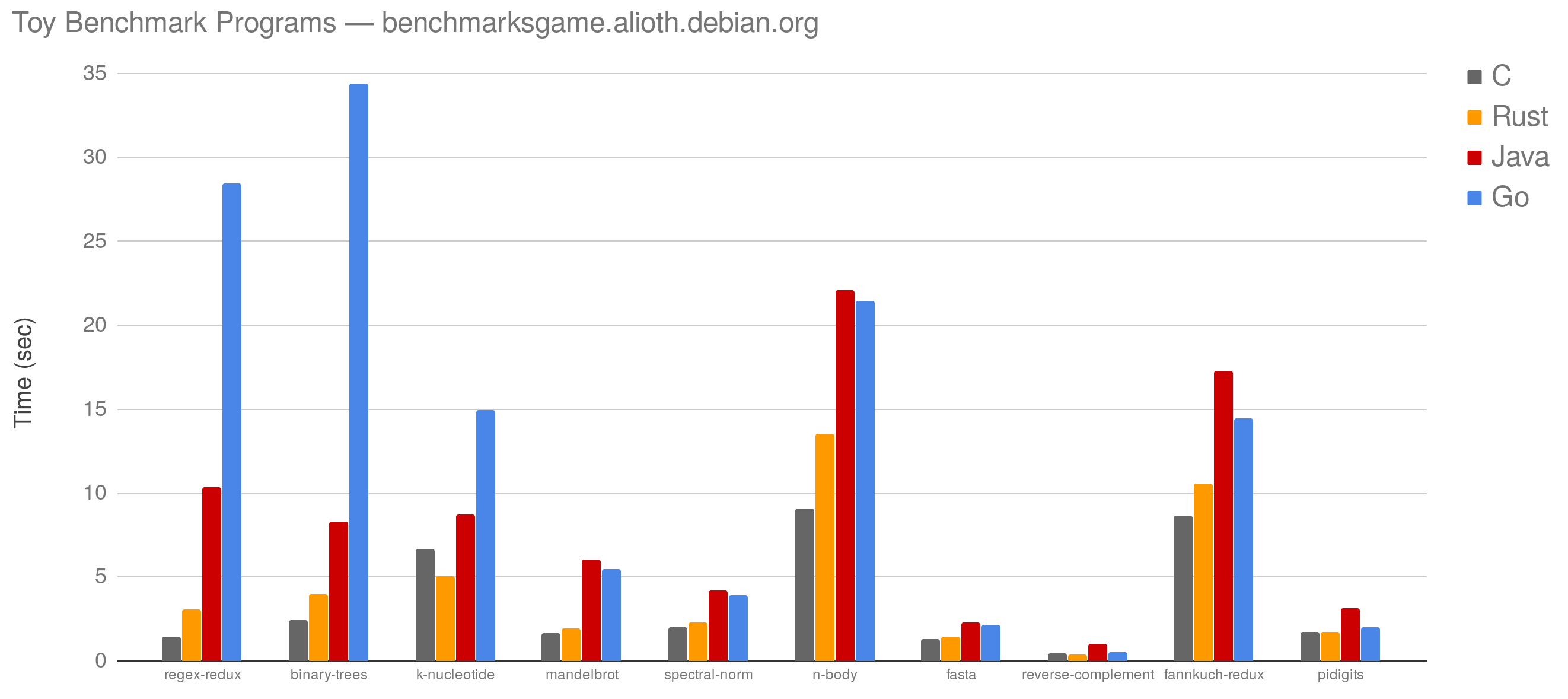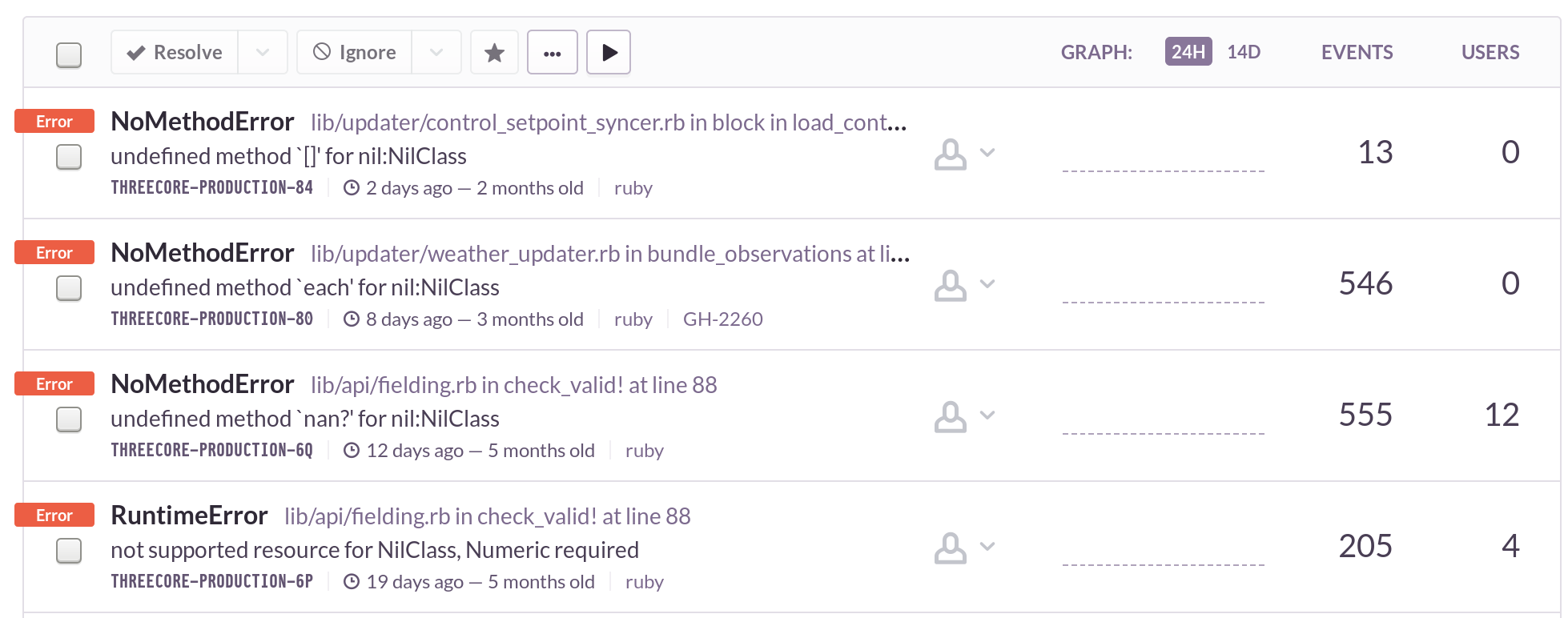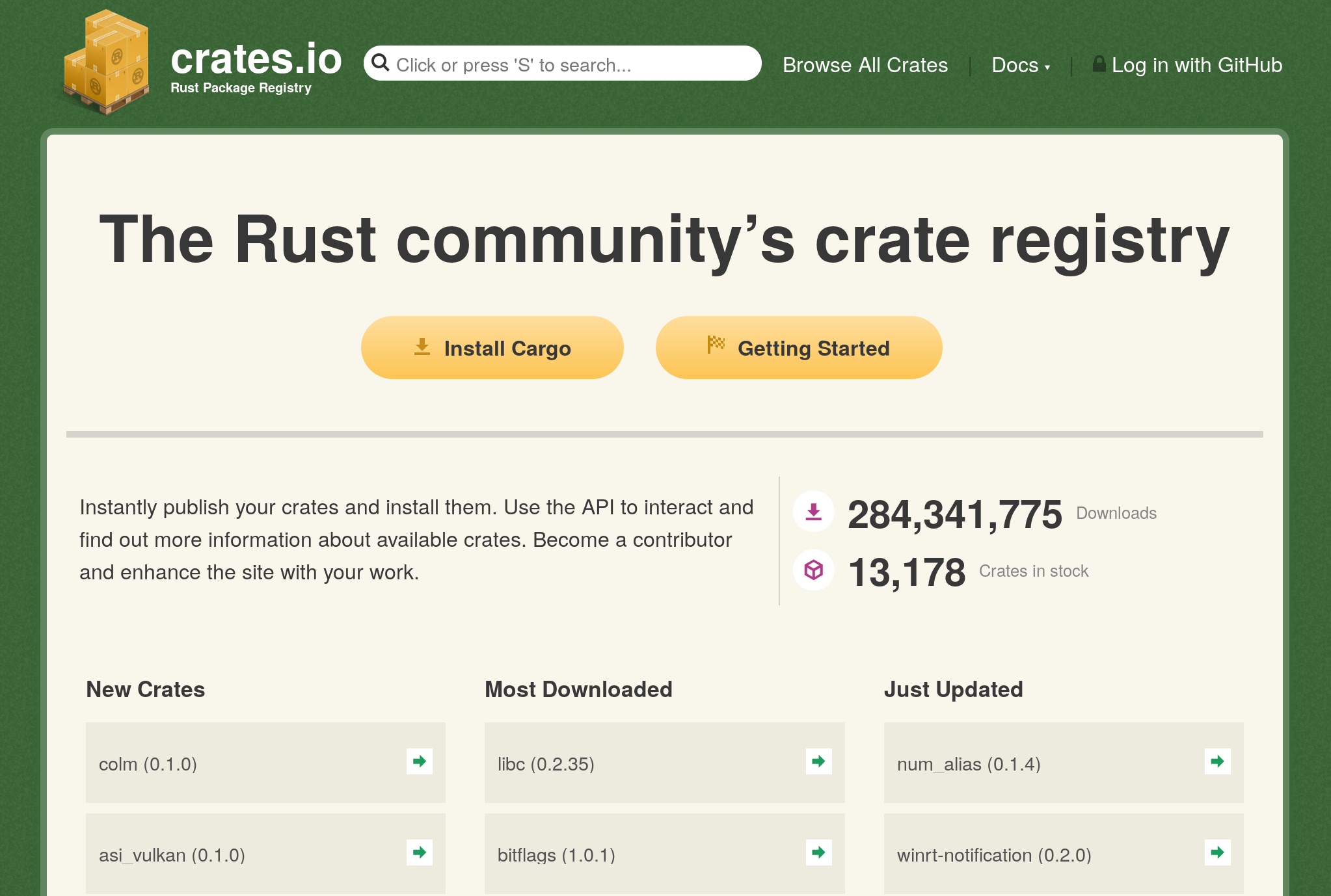9.8 KiB
class: center, middle, ferris
Introduction to Rust
Wesley Moore
Agenda
- Features
- Tooling
- Concepts
- Demo
- Questions
Introduction
fn main() {
println!("Rust Introduction");
}
Rust is a systems programming language that runs blazingly fast, prevents segfaults, and guarantees thread safety.
Systems Programming Language
- Compiles to native code.
--
- Aims to solve the same sorts of problems that C and C++ are used to solve but with improved safety.
--
- Also seeing use in:
--
- Web (front and backend)
--
- Operating systems (Redox OS)
--
- Embedded systems (microcontrollers)
Runs Blazingly Fast
Runs Blazingly Fast
- No interpreter, no runtime.
--
- Memory safety without garbage collection.
--
- Zero cost abstractions.
class: segfaults
Prevents Segfaults
- No
nil,NULLor other [billion dollar mistakes][billion-dollar-mistake].
This is not a thing. At all. Ever.
.center[[billion-dollar-mistake]: https://www.infoq.com/presentations/Null-References-The-Billion-Dollar-Mistake-Tony-Hoare]
Guarantees Thread Safety
- Strongly, statically typed with an emphasis on safety and correctness.
--
- Ownership model tracks owner and lifetime of memory.
--
- No data races: Compiler knows which thread owns what data.
--
- This leads to, "Fearless Concurrency".
Mozilla made two previous attempts to parallelize its style system in C++, and both of them failed. But Rust’s fearless concurrency has made parallelism practical!
— Fearless Concurrency in Firefox Quantum (Nov 2017)
Strong Static Type System
- Do more at compile time so fewer tests and runtime checks are required.
--
- Concepts mostly familiar. No need to learn an entirely new paradigm.
--
- Traits and generics instead of objects and inheritance.
--
- Type inference reduces the need to provide type annotations.
--
- Refactor with impunity — even in large code bases.
Tooling
Official distribution includes: cargo
:
- Build tool (no Makefiles)
--
- Package manager (like bundler)
--
- Test runner
--
- Documentation generator
Releases
Generally managed with rustup
:
- Official toolchain manager (like rbenv)
--
- New releases every 6 weeks
- Committed to backwards compatibility in every release.
class: crates
Crates
- Rust favours a small, stable standard library.
- Crates are the equivalent of Ruby gems. They are published to crates.io.
Community and Direction
- RFC process.
--
- Systematic improvement.
--
- Emphasis on inclusion and building a friendly community.
class: center, middle, bigger
Concepts
Functions
fn add(left: i32, right: i32) -> i32 {
left + right
}
fn main() {
let sum = add(2, 3);
}
Conditionals: if
let temperature: i32 = 29;
if temperature > 25 {
println!("Wesley is happy");
}
else {
println!("Too cold");
}
Conditionals: match
Can match structure and values:
let month = "jan";
match month {
"jan" => 1, "feb" => 2,
"mar" => 3, "apr" => 4,
"may" => 5, "jun" => 6,
"jul" => 7, "aug" => 8,
"sep" => 9, "oct" => 10,
"nov" => 11, "dec" => 12,
_ => panic!("invalid month"),
};
Loops
let numbers = [1, 2, 3];
for i in numbers.iter() {
// do something
}
for i in 0..10 {
// do something
}
Also less frequently used commonly used loop and while.
Functional or Imperative
fn variance_mean(data: &[f64], mean: f64) -> f64 {
let mut sum = 0.;
for d in data {
sum += (d - mean).powf(2.0);
}
sum / data.len() as f64
}
Code from hydromath crate by Andrew MacDonald.
Functional or Imperative
fn variance_mean(data: &[f64], mean: f64) -> f64 {
data.into_iter()
.map(|d| (d - mean).powf(2.0))
.sum::<f64>() / data.len() as f64
}
--
You pay no cost for using the higher level style, it compiles to identical machine code (I checked).
enums
Type that represents one possibility of several variants. Variants may optionally carry data.
enum SerialProtocol {
Usb,
Rs485,
Rs232,
I2C,
Spi,
}
structs
Type that carries structured data.
struct Person {
name: String,
age: i32,
favourite_serial_protocol: SerialProtocol,
}
impl Person {
fn name_and_age(&self) -> String {
format!("{} is {} years old", self.name, self.age)
}
}
Option
Instead of nil and NULL there is Option.
- Used to represent something that may be absent.
enum Option<T> {
Some(T),
None
}
Result
When something can succeed or fail with an error.
- There are no exceptions in Rust,
Resultis how you handle errors.
enum Result<T, E> {
Ok(T),
Err(E)
}
Demo
Small tool that will determine a file's type from its extension:
filetype src/main.rs somefile.rb
Should give output like:
Rust: src/main.rs
Ruby: src/somefile.rb
class: center, middle, bigger
Demo
class: center, middle, invert, bigger
Questions?
Credits
- Animated Ferris by A. L. Palmer, via rustacean.net.
- Portions of this talk were derived from A Very Brief Intro to Rust
Copyright © 2016 Ashley Williams. - Benchmarks chart generated from data on The Computer Language Benchmarks Game on 10 Jan 2018.



